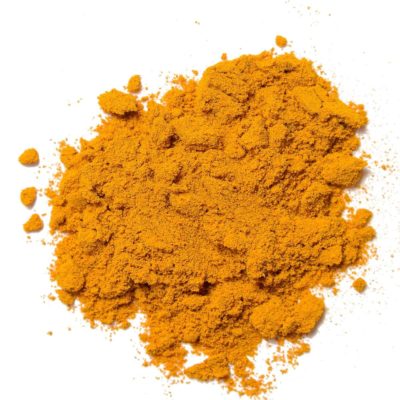Study in Mice Suggests that Compound in Turmeric May Reduce Anxiety and Promote Resilience to Stress
 Chronic stress is a risk factor for the development of mood and anxiety disorders. Researchers have begun to focus on how to promote resilience to stress. Curcumin is a micronutrient found in turmeric that has anti-inflammatory and antidepressant effects and may promote such resilience.
Chronic stress is a risk factor for the development of mood and anxiety disorders. Researchers have begun to focus on how to promote resilience to stress. Curcumin is a micronutrient found in turmeric that has anti-inflammatory and antidepressant effects and may promote such resilience.
Researchers studying human depression often design studies to see how mice with chronic social defeat stress respond to various interventions. Mice who are repeatedly menaced by a larger mouse begin to show symptoms that resemble human depression, such as social avoidance, lack of interest in saccharin compared to plain water (a stand-in for loss of enjoyment or anhedonia in humans), and anxiety.
In a 2018 article in the journal Neuropsychopharmacology, researcher Antonio V. Aubry and colleagues described the effects of curcumin on mice undergoing chronic social defeat stress. Mice who were given a diet that consisted of 1.5% curcumin showed a 4.5-fold increase in resilience to social defeat stress, measured by their performance during a test of social interaction. Among the 129 mice in the study, 64% showed the increase in resilience, the remaining 36% did not respond to the curcumin diet and had the normal ‘depressed’ response. The mice who responded well to curcumin released less of the stress hormone corticosterone, and they also had lower levels of the inflammatory marker IL-6.
All of the mice on the curcumin diet showed reduced anxiety during tests that forced them to travel through open spaces (when they prefer to stay in more enclosed spaces or move along the edges of an enclosure).
Curcumin Improves Memory and Depression
Recent studies suggest that curcumin, the micronutrient in turmeric that gives Indian curry its bright color, may reduce depression and improve memory.
A 2018 study published in the American Journal of Geriatric Psychiatry by Gary Small, director of geriatric psychiatry at UCLA’s Longevity Center, and colleagues found that a curcumin supplement improved mild, age-related memory loss in people without dementia.
Forty adults between the ages of 50 and 90 received either placebo or 90 mg of Theracumin, a bioavailable form of curcumin, twice daily for 18 months. The participants took cognitive tests at the beginning of the study and every 6 months during the study. Thirty of the participants also received positron emission tomography (PET) scans upon beginning and ending the study to evaluate the appearance of plaques and tangles in their brains.
Participants who received curcumin saw improvements in verbal and visual memory and attention over the course of the study compared to those who received placebo. The curcumin participants also saw mild improvements in mood, and less accumulation of amyloid plaques and tau tangles in the amygdala and hypothalamus, brain areas that play a role in memory and emotion. A few participants had mild gastrointestinal effects after taking Theracumin.
In India, where diets are high in curcumin, there is a lower incidence of Alzheimer’s than in the west, and older people also have better cognitive performance than in the west.
Curcumin has anti-inflammatory, antioxidant, and neuroprotective properties. Researchers speculate that curcumin may reduce brain inflammation, which has been implicated in both depression and Alzheimer’s disease.
A 2017 meta-analysis by Qin Xiang Ng and colleagues of 6 studies of curcumin including a total of 377 patients found that the substance has significant antidepressant effects compared to placebo. Half of the studies also reported improvements in anxiety. No adverse events were reported. Ng’s meta-analysis was published in the Journal of the American Medical Directors Association.


